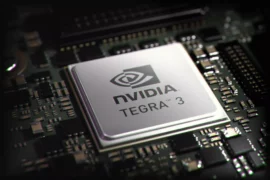News of Zuckerberg’s unannounced visit broke with social media photos of him visiting Nigeria’s Co-Creation Hub (Cchub) innovation center in Lagos’s Yaba District.
Zuckerberg met with coders in the co-working space and visited the incubation unit, where he talked with startup reps from Hotels.ng and LifeBank App. Zuckerberg dropped in at Andela — a software developer accelerator he and his wife’s foundation invested $24 million in earlier this year — and caught some creative industry tech, touring digital media startup Afrinolly’s offices.
Zuck also hosted a Facebook town hall and Q&A session and swapped his grey t-shirt for a suit to meet with Nigeria’s President Muhammadu Buhari.
The Facebook CEO’s Africa trip extended to Kenya, where he visited the iHub innovation space, checked out solar innovation at the Gearbox prototyping startup, reviewed the BRCK mobile Wi-Fi device, had lunch with Kenyan ICT Cabinet Secretary Joseph Mucheru, and met with local tech leaders including Juliana Rotich, Erik Hersman, and Kamau Gachigi.
So what brought Zuckerberg to Nigeria and Kenya? “I’ll be meeting with developers and entrepreneurs, and learning about the startup ecosystem…” he said in a Facebook post. On company commitments, none had been planned, Facebook spokesperson Sally Aldous told TechCrunch. “This is a trip about listening and learning and understanding the challenges,” she said.
From a tech perspective, there are compelling reasons to do both in each country. Nigeria has its share of well publicized challenges, but the continent’s most populous nation has also become a hotbed for tech activity and investment.
Lagos’s Yaba district, where Zuckerberg first visited, is a magnet for IT entrepreneurs, incubators, and startups. Three of the continent’s best funded/well known e-commerce ventures, including newly minted unicorn Jumia Group, are all headquarted in Lagos. In June eBay named Nigeria as the opening country for its Africa expansion.

In East Africa, Kenya has become a regional tech capital, dubbed “Silicon Savannah”, for its advances in digital finance, tech incubators, and local IT innovations such as BRCK and the Ushahidi crowdsourcing platform. The success of local telco Safaricom’s M-Pesa mobile money product is also globally recognized.
Facebook has 84 million users in Sub-Saharan Africa, 17 million in Nigeria, 14 million in South Africa, and 5.7 million in Kenya. In 2016 Facebook launched its Free Basics program, which allows users limited internet services free on mobile in 17 African countries.
Since it is unlikely Mark Zuckerberg blocks big parts of his formal schedule for anything that’s not strategic, expect to hear about new Facebook Africa initiatives post-trip. A particular play could include updated partnerships to increase internet connectivity across the continent. Though improving, penetration still lingers low at around 30 percent.
Better connectivity and more users set Facebook up to tap Africa’s online advertising market, which is growing with the continent’s shift to digital commerce — expected to reach $75 billion by 2025. Unfortunately for Facebook, its global connectivity drive suffered a setback during Zuckerberg’s Africa visit when the SpaceX rocket carrying the company’s Amos-6 satellite crashed pre-launch.
McKinsey’s Global Institute, working closely with the Gates Foundation, released a new emerging markets fintech report. Among other wow statistics, it projects digital finance adoption could add $103 billion to the economies of Ethiopia and Nigeria, while creating $66 billion in new business and personal loans.
Kenyan mobile data collection startup mSurvey raised new seed capital from Safaricom’s VC fund, Cross Culture Ventures, and Virgin Group’s Alpha Angels. The four year old company will expand its mobile phone based survey business that captures and sells value-add African consumer data.
Nigerian digital entertainment startup Iroko launched IrokoX, a multi-platform Pan-African network for filmmakers, musicians, and other creative aspirants to produce, distribute, and monetize short-form content. The new medium will provide select artists production assistance and the opportunity to show their work on global partner networks such as Youtube, iTunes, and Google Play.
Some updates on past TC Africa coverage. Kenya’s Safaricom rebranded its recently launched ride hail app (and Uber competitor) Little Cab to Little, confirmed Sales and Marketing Head Maureen Chege. Safaricom has bigger plans for the service than “just cabs” and dropped the word to be less restrictive, she explained.
We reported in May on IBM Research Africa’s project to create a cognitive computing Africa equivalent to Watson, dubbed Lucy, from its Nairobi lab. The U.S. blue chip giant expanded that effort in August, opening a second research lab in Johannesburg, South Africa.

San Francisco based robotics company Zipline, covered here on its UPS partnered program for drone delivery of medical supplies in Rwanda, plans to publicly launch the service in October, confirmed co-founder Keller Rinaudo. The company’s drones and flight kit arrived in country by UPS and Zipline is completing diagnostic testing.



